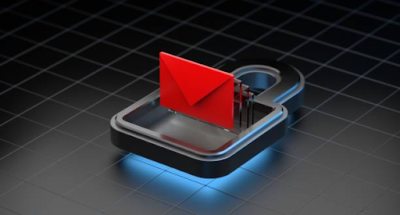Email security is an important aspect of modern-day communication. In the digital age, many businesses rely on email for communication, and it is essential to protect these emails from unauthorized access or misuse. Email security involves a variety of measures designed to ensure that messages sent via email remain confidential and secure.
The most basic form of email security is encryption, which scrambles the text within an email so that only authorized users can read it. This ensures that even if someone intercepts an email message, they will not be able to make sense of its contents. Other forms of encryption can also be used; for instance, public key cryptography (also known as asymmetric cryptography) allows two parties to exchange encrypted messages without having to share a secret key between them.
Another important form of email security is authentication, which helps verify the identity of the sender or recipient before any data is exchanged over the network. Authentication typically requires users to enter a username and password to gain access; if this information matches what’s stored in a database then the user can be granted permission otherwise they are denied entry into the system.
Benefits of Email Security
In today’s digital world, email security is extremely important. Emails are one of the primary ways that people communicate and share information, so it’s essential to protect them from malicious attacks and hackers. Email security helps to ensure that emails are sent securely and stay secure while in transit. It also helps to protect users from malicious software, spam, phishing attacks, and other threats that can compromise the safety of their information.
One of the main benefits of email security is data protection. It helps to make sure that any sensitive information shared via email remains secure at all times. This includes passwords, credit card numbers, banking details, personal documents or images – anything confidential should be kept safe with a reliable email security solution. Encrypting emails before they’re sent out or received by a user’s inboxes means that only those who have the correct encryption key can access them making it much harder for hackers to gain access or steal data from an account.
Another advantage of using an email security solution is improved compliance with applicable industry regulations such as HIPAA (Health Insurance Portability and Accountability Act) or GDPR (General Data Protection Regulation). Securely sending data through encrypted emails ensures companies meet regulatory standards for protecting confidential customer information.
How to Implement Comprehensive Email Security
Email security is an important part of any digital infrastructure. With the ever-growing sophistication of cybercriminals, businesses must take all necessary steps to protect their emails from malicious attacks. Implementing a comprehensive email security strategy is the best way to ensure that your emails remain safe and secure.
The first step in implementing a comprehensive email security plan is to use an email encryption solution. This type of software encrypts emails so that only authorized users can access them, making it difficult for attackers to read or modify messages in transit. Additionally, this encryption ensures that even if a message does get intercepted by an attacker, they won’t be able to make sense of it without having the decryption key.

Organizations should also consider implementing multi-factor authentication for their email accounts. This process requires users to enter two or more pieces of information (such as passwords and one-time codes) before they are granted access; making it much harder for cybercriminals to gain unauthorized access to accounts through brute force attacks or password guessing techniques.
Conclusion
In conclusion, email security is an important consideration for businesses and individuals alike. Email security is critical to protect confidential information and guard against unauthorized access. By implementing the necessary measures such as encryption, authentication, anti-spam software, virus protection and two-factor authentication, users can ensure their emails are secure from attack. Furthermore, by following good practices such as creating strong passwords and regularly changing them users can reduce the risk of becoming a victim of cybercrime.
















